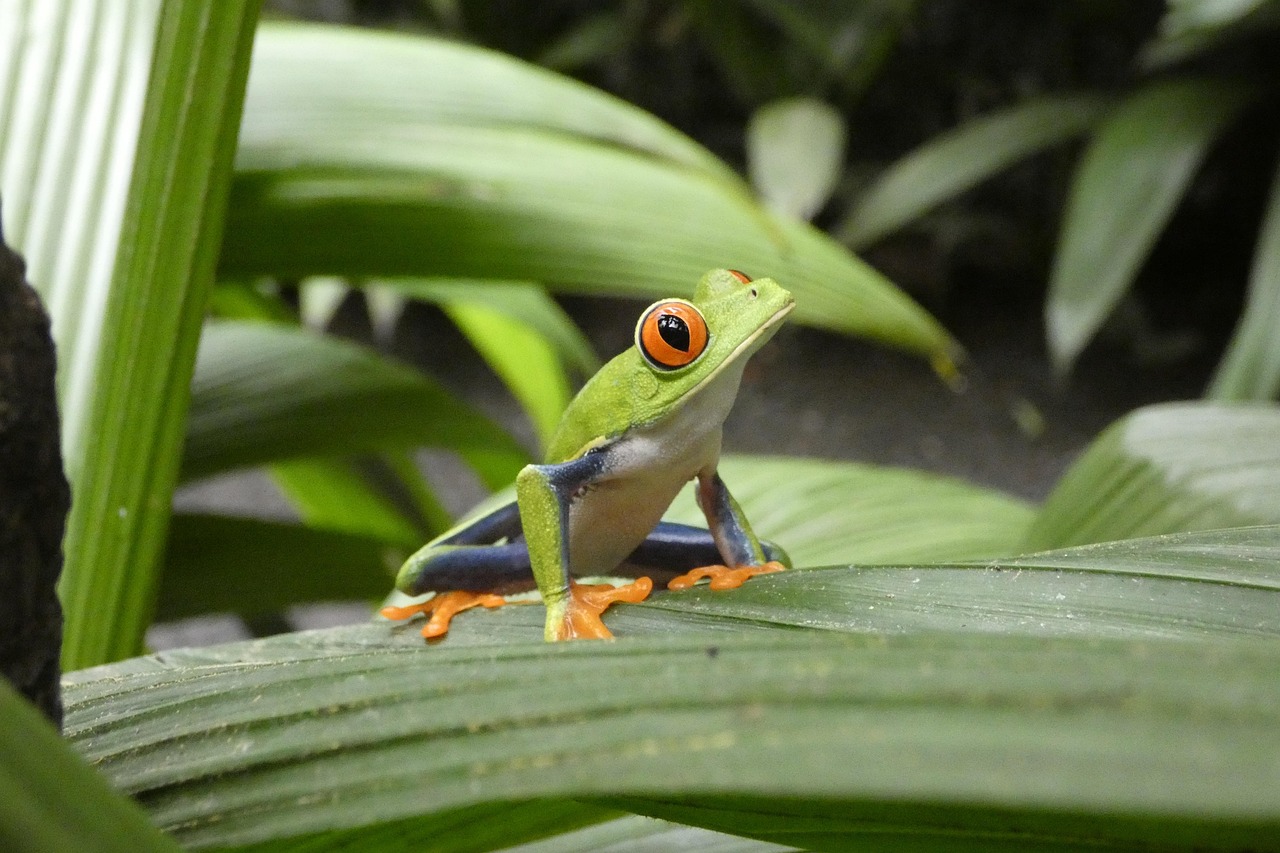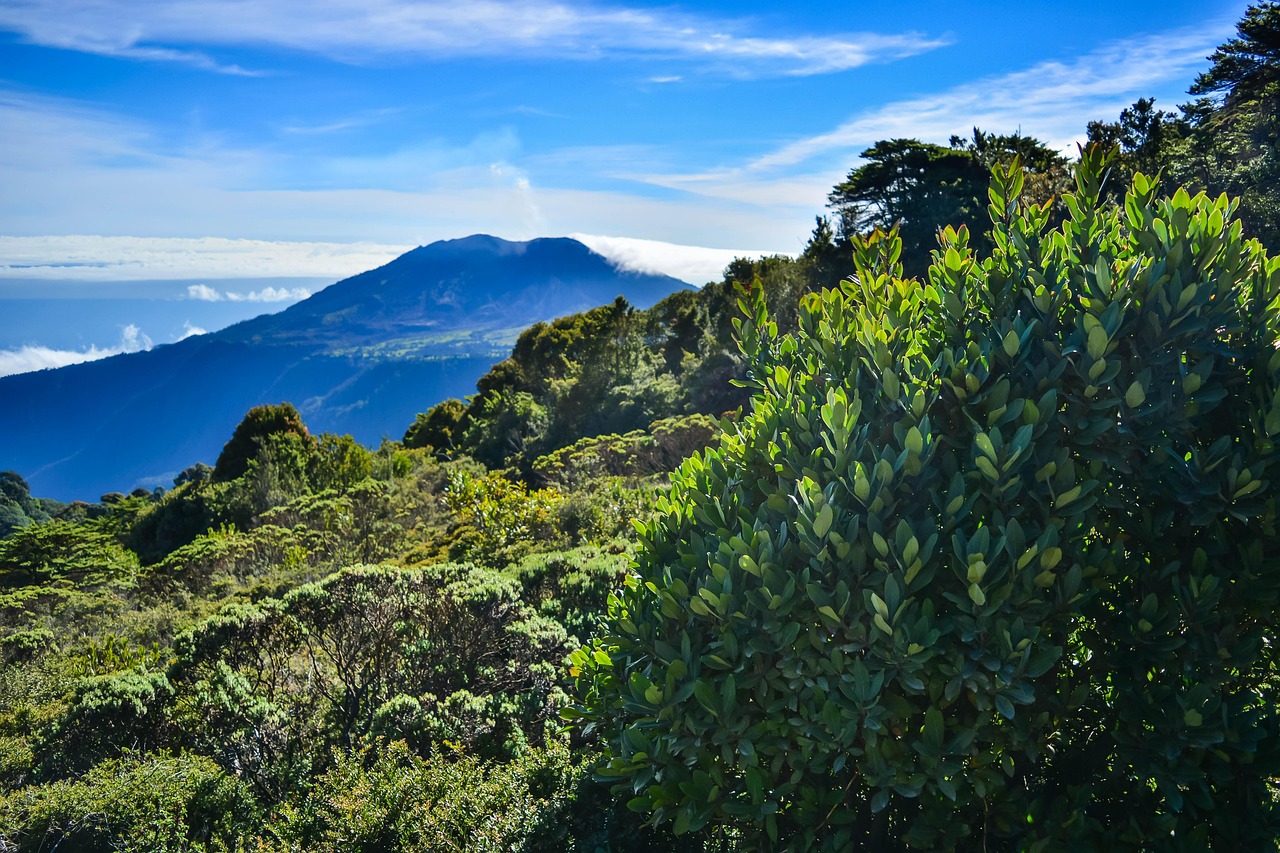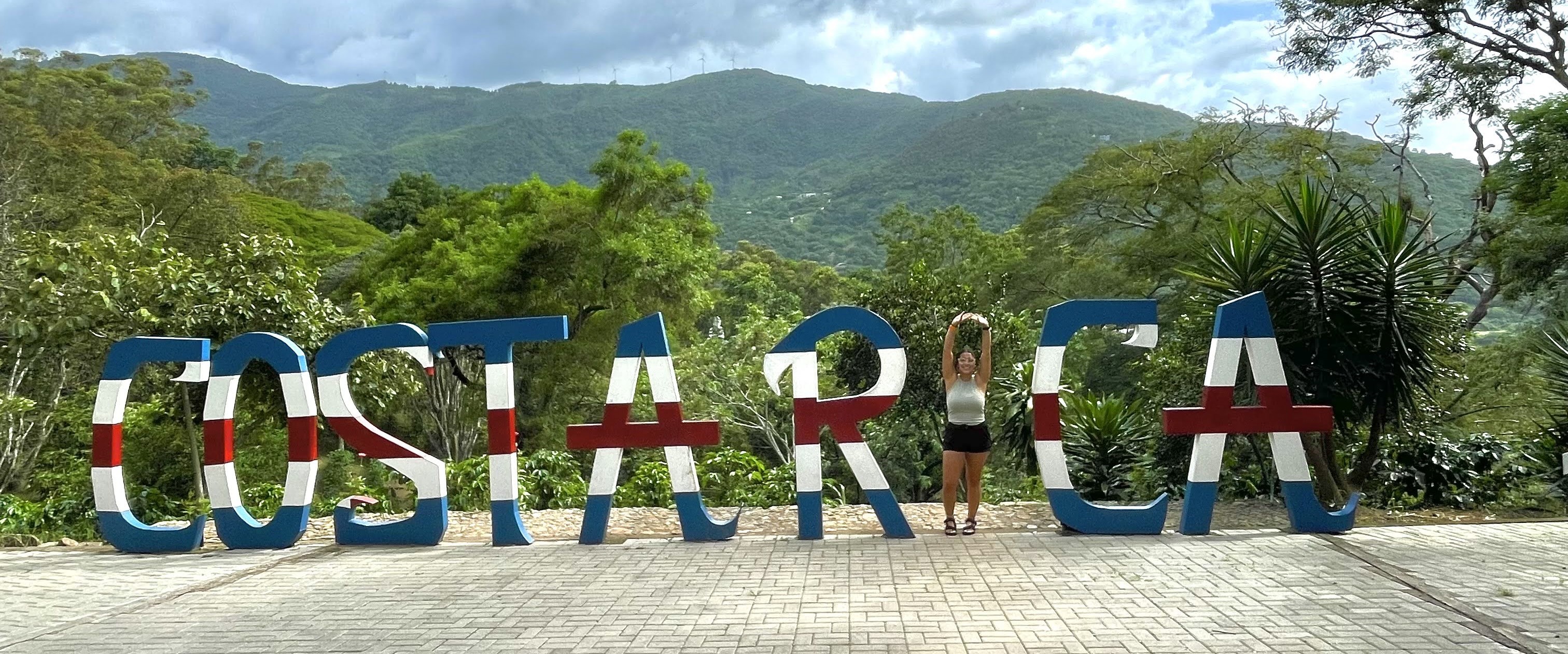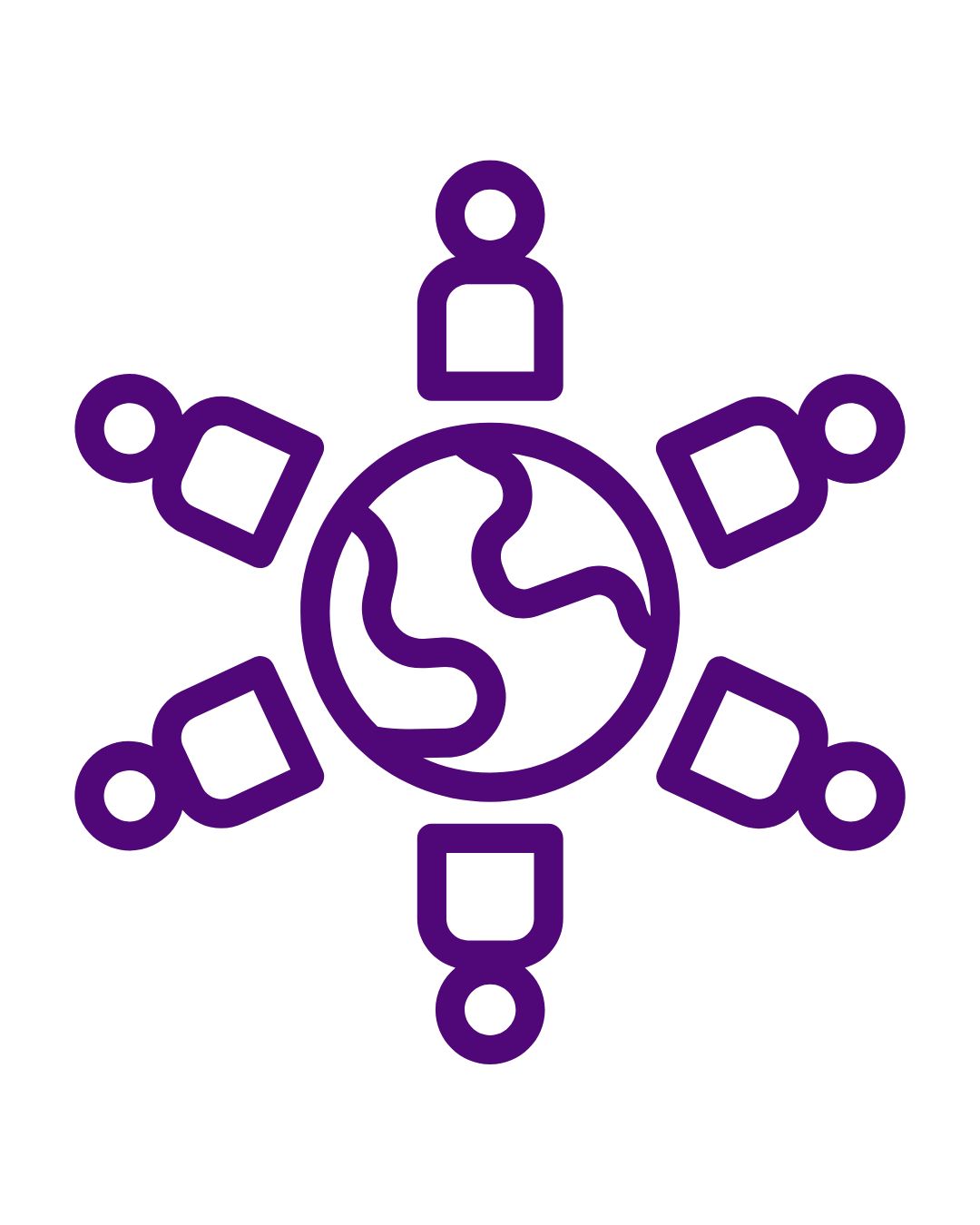Faculty-led Program in Costa Rica

Course Options (3 credit hours)
BIOL 1200: Biological Diversity and Conservation
Dates & Deadlines
App Deadline: Monday December 15th, 2025
Program Dates: Monday, May 18 - Sunday May 31, 2026 (Dates tentative)
Schedule A Meeting
To get started, click the link below to schedule a meeting with an advisor. During this meeting, we will go over important information regarding academics, day-by-day itinerary, housing, costs, scholarships, and answer any questions you may have at this time.
Interested in studying abroad in the winter of 2027 or later? Please fill out the waitlist form below and the study abroad center will notify you when applications for future terms open.
Unsure where to begin? Visit our Application Process page to learn more!

My favorite part was having the opportunity to experience so many different parts of a country. We weren’t just staying in one town, we actively saw different cultures, climates, and different levels of biodiversity all in one trip.
Course Leader
Mark Myers, Professor
Department: Biology
Phone: 319-273-2493
E-mail: mark.myers@uni.edu
Campus Address: BRC 38
Mark has been a Biology professor at UNI since 2006. He teaches Conservation Biology, Ecology, Wildlife Ecology & Management, Biodiversity Conservation Policy, and Evolution, Ecology, & the Nature of Science. Mark has traveled extensively in Costa Rica, Colombia, and Mexico and has published research on marine and terrestrial species conservation in Costa Rica. Mark has a keen interest in Latin American cultures and its incredible biodiversity.
- Academics
BIOL 1200: Biological Diversity and Conservation (3 credit hours)
- Talk to your academic advisor about how this course would work for you! This course can fulfill a variety of credit options, such as the Responsibility requirement in UNIFI.
Biological diversity (biodiversity) is essential for healthy, functioning ecosystems that form the basic life support system for all living creatures on earth, including humans. The current reduction of biodiversity (extinction rate) is estimated between 100-1000 times the historical background rate and presents a potentially existential challenge for human society. In this course, we will observe and explore biodiversity in one of the most biodiverse regions of the planet. We will learn how scientists document and measure biodiversity, and learn about how human activities affect biodiversity. We will learn about the consequences of biodiversity loss and explore current efforts to conserve biodiversity and difficulties these efforts face. Conservation may appear straightforward at first blush, but the implementation of policies are often rife with ethical questions ranging from the rights of indigenous peoples to the downstream effects of our own day-to-day decision making. In this course, students will experience the interplay of conservation and ethics and compare ethical models that can be brought to bear when considering both conservation issues on a regional or global scale as well as personal responsibility and individual decision making. Students will begin developing their own model of conservation ethics that they can employ and adjust during their class project and throughout life. Students will begin this work on campus and will develop it further during our travels while completing a self-designed conservation-based project incorporating their ethical model.
In order to accomplish course objectives, we will concentrate on a regional subset of the earth’s biodiversity: the the montane forests of the Central Highlands and the wet tropical forests of the Osa Peninsula of Costa Rica. After preliminary study on campus, we will examine this region first-hand during a two week trip in late May.
There are no course prerequisites. All majors are welcome. Participation in this program requires class meetings during the spring semester, although the course is scheduled as a summer program course. The Study Abroad Center will enroll participants in the course. Please contact the program's course leader (mark.myers@uni.edu) for more information on academic requirements.
NOTES:
- Students planning to participate in the spring commencement ceremony in May can enroll in this summer term program, however, their degree will not be conferred until the end of the summer term and is contingent on the successful completion of the program and all required coursework.
- Students attending colleges and universities other than UNI are welcome to participate in this program. If you are not currently a UNI student, but would like to participate in this program, please contact the UNI Study Abroad Center prior to starting your program application.
- Program Activities
The 2026 Costa Rica study abroad itinerary offers an immersive exploration of biological diversity and conservation across the country, including the central Highlands of Cerro de la Muerte and Monteverde and the lush lowland tropical forests of the Osa Peninsula. Students will participate in guided hikes, field workshops, and faculty-led lectures on rainforest ecology, tropical marine systems, wildlife identification, and climate change. Highlights include visiting Corcovado National Park and observing its abundant wildlife, experiencing the beautiful cloud forests at the Monteverde Biological Reserve, swimming at Pacific Ocean beaches and snorkeling at Caño Island, and experiencing diverse conservation initiatives throughout the country. This rich itinerary blends real-world field excursions with academic rigor in one of the world’s most biodiverse regions.
This is a rigorous, field-based course in Biology. The program will require participants to walk several miles a day at a rigorous pace over uneven surfaces, including h a few cases involving steep slopes and substantial elevation change. . The itinerary includes multiple day trips that involve transportation by boat with beach landings, where students should be prepared to embark and disembark by wading. All participants must follow instructions from guides and faculty at all times.
Studying abroad offers rich cultural immersion, but it may also involve unfamiliar sensory experiences. You might encounter new sights, sounds, smells, tastes, and environmental conditions that differ significantly from what you're used to. These can be exciting but also overwhelming for some individuals, especially those with sensory sensitivities. We encourage all participants to approach these experiences with curiosity and adaptability. If you have sensory sensitivities or specific concerns, please reach out to program staff.
- Housing & Meals
Hotel accommodations for students will be arranged in advance by the Study Abroad Center and fully included in the total cost of the program. Also included in the program cost are select meals while in country. Students are encouraged to take advantage of the opportunity to explore local cuisine and dining experiences.
- Health and Wellbeing
Health Preparation for Studying Abroad
Studying abroad is an exciting opportunity, but it also requires careful planning—especially when it comes to your health. To ensure a safe and successful experience, we strongly recommend the following steps:
1. Talk to Your Healthcare Provider Early
At the time you are selecting your study abroad program, schedule an appointment with your primary care provider or specialist to discuss:- Medication Legality: Some prescription and over-the-counter medications that are legal in the U.S. may be restricted or illegal in other countries. Your provider can help you determine if your medications are permitted in your destination and suggest alternatives if needed.
- Chronic Conditions or Health Concerns: Discuss how your health needs might be affected by travel, climate, time zone changes, or access to care abroad.
- Mental Health Support: If you are currently receiving mental health care, talk with your provider about how to maintain support while abroad.
2. Schedule a Travel Health Consultation (6–8 Weeks Before Departure)
A separate travel health consultation is essential and should be held at least 6–8 weeks before your departure. During this appointment, a travel medicine specialist can:- Review your destination-specific health risks
- Recommend or administer necessary vaccines
- Provide guidance on food and water safety
- Prescribe medications for travel-related illnesses (e.g., malaria, traveler’s diarrhea)
- Offer tips for managing jet lag, altitude, and other travel-related challenges
These appointments can be held at the UNI Student Health Clinic. For more information on their services, please visit their website.
Accessibility and Study Abroad: Plan Ahead for a Smooth Experience
If you are a student with a disability or accessibility concern—whether related to mobility, learning, mental health, chronic health conditions, or other needs—we encourage you to connect with Student Accessibility Services (SAS) as early as possible, ideally during the program selection process. Early communication allows our team to understand your specific needs and preferences and explore available accommodations in your host country.
Accessibility resources and standards can vary widely by country, so advance planning is essential to help us advocate for your needs and create a positive, inclusive experience abroad.
Reach out to Student Accessibility Services to start a conversation. The sooner we know, the more we can do to support you.
- Important Information to Review
A faculty-led study abroad program combines academic learning with cultural immersion, guided by university faculty. Students earn credit through hands-on experiences and site visits tailored to the destination. The program fosters a strong sense of community through shared housing, group activities, and cultural events, creating lasting bonds among participants. This type of program has limited individual free time and days will be spent primarily with other group members. If you are interested in a more individualized program experience, we encourage you to check out our partner university summer school opportunities.
Study abroad is a once-in-a-lifetime opportunity to be challenged by new experiences in new environments and cultures. UNI study abroad programs are designed to prioritize educational opportunities for students. Students are encouraged to embrace the adventure of exploring how housing, meals, and daily routines differ abroad.
Meet your Advisor:
Steph is a full time study abroad advisor who will help you throughout the application process to Costa Rica, including documentation, finances, scholarships, and more. From your first steps meeting until you take off for your new adventure, Steph will help you every step of the way.
Important information to review:
Study abroad is a once-in-a-lifetime opportunity to be challenged by new experiences in new environments and cultures. UNI study abroad programs are designed to prioritize educational opportunities for students. Students are encouraged to embrace the adventure of exploring how housing, meals, and daily routines differ abroad.
Identities Abroad
The Study Abroad Center (SAC) wants to support you as you prepare for your study abroad experience. In addition to course planning and arranging accommodations, it is also important to engage in personal reflection before your departure. There may be certain aspects of your identity that could potentially impact your international experience in ways that you have not faced or thought about previously. As we are here to help guide you, you may want to consider meeting with the SAC staff to discuss this as you plan your abroad experience. Please visit our Identities Abroad page for more information and help.
Entry and Exit Requirements
Review and follow the travel recommendations of the U.S. State Department for travel to Costa Rica

Program Costs
Estimated Program Cost: $5,921 - $6,421
*estimated total cost of participation, actual amount depends on type of housing accommodation selected, actual airfare purchase price, personal spending habits, and other factors
| Estimated Program Cost | |
|---|---|
| Estimated Total Program Cost | $5,921 - $6,421 |
| Estimated U-bill Charges | $4,814 - $5,014 |
| Estimated Out-of-Pocket Costs | $1,107 - $1,407 |
Costa Rica Summer 2026 Cost Estimate (PDF)
What's Included

Tuition and Fees

Housing and Meals

Program Activities

Pre-Departure Advising

Travel Health Insurance

Transportation
Eligibility Requirements to Study Abroad
The Study Abroad Center reserves the right to determine participants' eligibility to study abroad. Students must have a completed study abroad application, including supportive recommendation form(s). View eligibility requirements.

